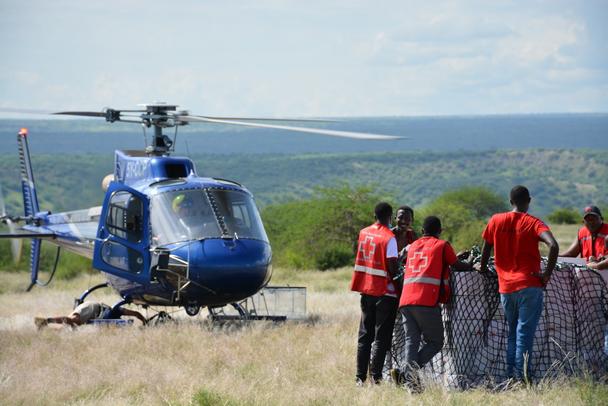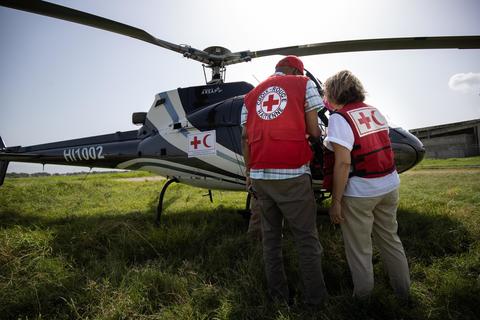A year in review: the Airbus Foundation in 2022

Following the recent publication of the 2022 Airbus Foundation Impact Report, we asked Rachel Schroeder, Airbus Foundation Managing Director, to reflect on her 2022 highlights and the strategic priorities for the Foundation.
What were the key highlights for the Foundation in 2022?
We had a very busy year in 2022 across all three of our focus areas. In Humanitarian Response, the Foundation provided 12 relief flights, delivering more than 175 tonnes of aid, and responded to almost 80 requests for satellite imagery from our NGO partners, helping them to inform their crisis response.
Our Youth initiatives spanned 17 countries across Europe, Africa, Asia, and the Americas, and reached 9,000 students. Not only did we deliver fresh content, but we also made that content more accessible by launching the new Airbus Foundation Discovery Space platform in four languages.
We’ve expanded the scope of our Environmental work by partnering with Association Océan Polaire and planning the provision of technical support for their pioneering Polar POD mission. Under the leadership of renowned French explorer and scientist Jean-Louis Etienne, Polar POD is a maritime expedition that will collect environmental and climate data in the Southern Ocean.
We also expanded our work with our existing partners Connected Conservation Foundation (CCF) and International Union for Conservation of Nature (IUCN), helping to protect biodiversity and monitor forest reforestation.
I’m very proud of our team's commitment delivering these programmes and the way they have stepped up to support our partners during busy times.
Over the past year, the Foundation has worked with more NGOs than ever before. What makes for a successful partnership?
A successful partnership is a collaboration of two parties with shared values, working together to achieve shared goals and make a positive impact. The Foundation offers our NGO partners a diverse range of products and services that help them tackle some of the world’s most challenging problems. When we get to know one another and collaborate in an atmosphere of trust, we can achieve great things. This can take time, but we are committed to cultivating enduring partnerships.
What are the biggest strategic priorities for the Foundation going forward?
Following our recent Annual Board meeting, I am happy to say that Airbus has renewed its commitment to the Foundation for a further five years.
Our Humanitarian efforts continue to be of paramount importance, as the demand for assistance rises due to geopolitical tension, global economic challenges and climate-related issues. Many of these requests originate from regions that have disappeared from the headlines, as their humanitarian crises have transitioned from acute to chronic. We will be exploring how we can increase our support in such areas of protracted crises.
We will also re-evaluate and refresh our Youth programmes to ensure we support the communities most in need of our help. According to UNICEF, the number of children displaced due to humanitarian crises has reached a new high of over 43 million. These children are being robbed of a proper education and a better future. In the future, we want our Youth programme to focus on children who don’t have access to basic education and development support.
When it comes to our Environment work, we now have three distinct partnerships and programmes: work with CCF to protect endangered species and their habitats, forest mapping and restoration with IUCN, and our newest project with Association Océan Polaire to better understand the environment and climate change through the Polar POD mission.
As we embark on our second year of dedicated work in this area, I am truly encouraged by the strides we have already made in achieving our objectives. Together with our partners, we have the potential to make a really tangible difference.




